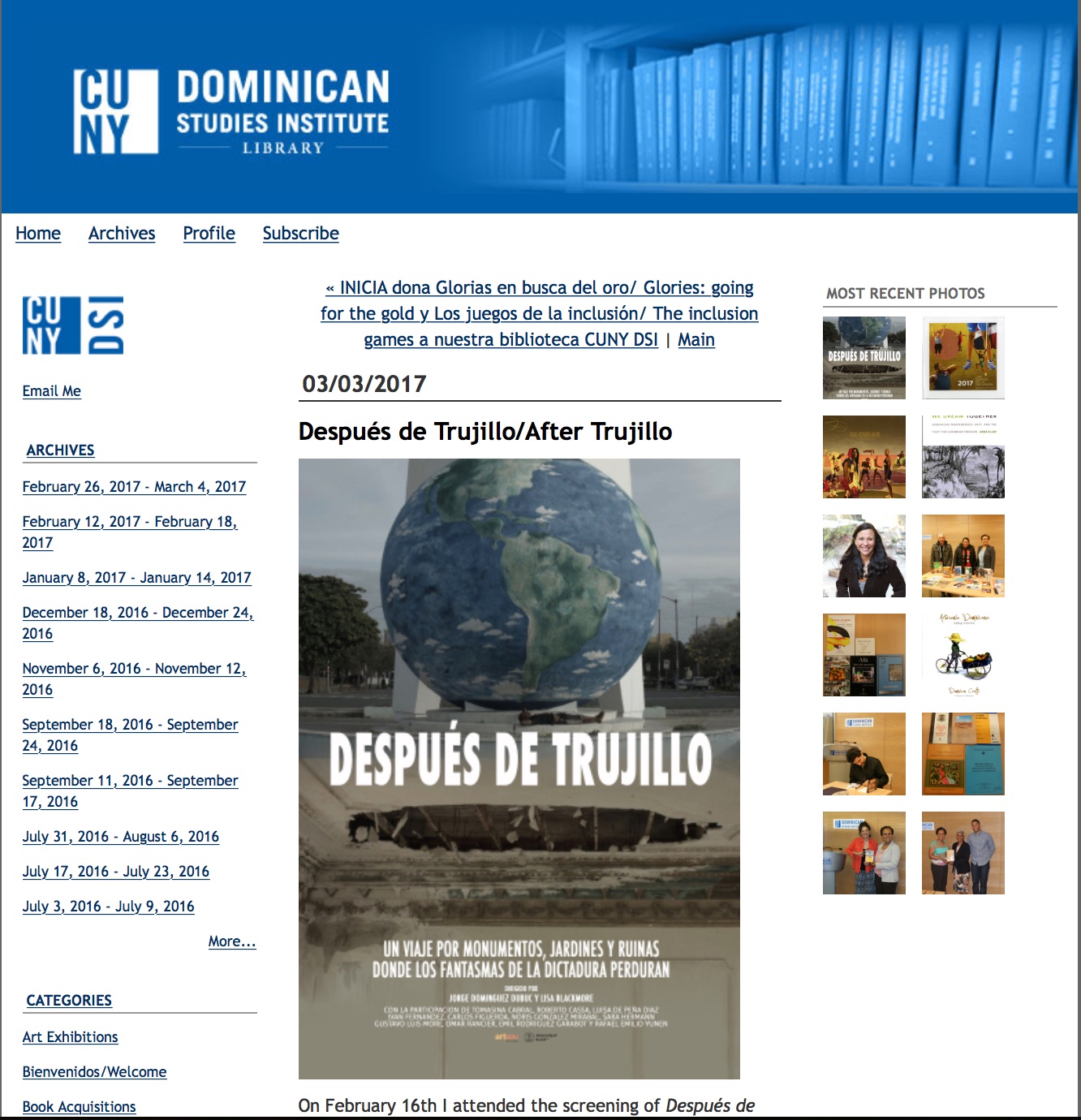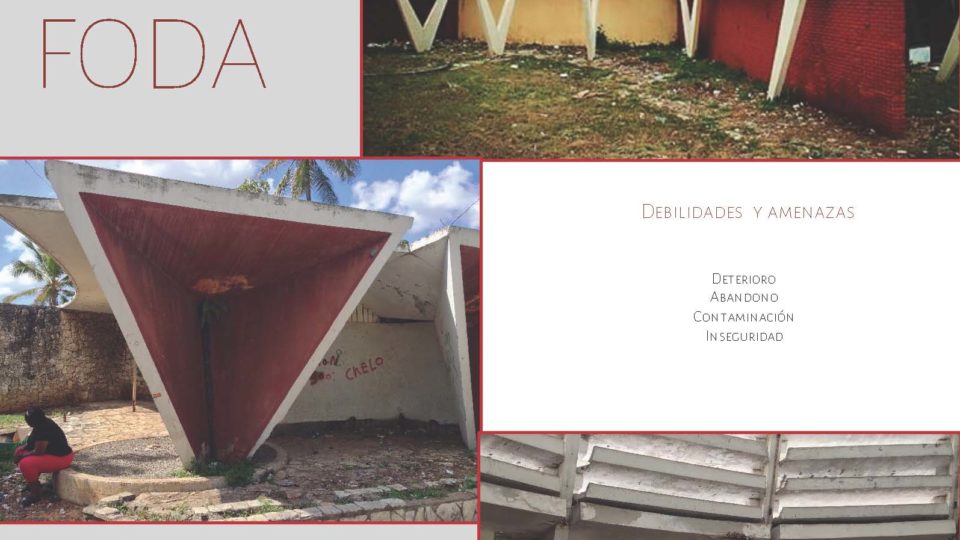Back in May 2016, Jorge and I visited the Dominican Studies Institute at CUNY, New York. There, we met the brilliant team that works in the Library: Sarah Aponte and Jhensen Ortiz, and told them about Después de Trujillo. The institute does important work supporting scholars working on the Dominican Republic and disseminating research among broader communities. We kept in touch with the institute and were fortunate to have Jhensen come along to the screening at John Jay College of Criminal Justice back in February. Last week, he published the following review of the film.
On February 16th I attended the screening of Después de Trujillo at John Jay College of Criminal Justice. Claudia Calirman, Associate Professor of Art History, invited co-directors Lisa Blackmore y Jorge Domínguez Dubuc to screen and discuss this new documentary on dictatorship, space, and memory with her students. The documentary opened a space to discuss the legacy of the Trujillo dictatorship through the monuments, memory gardens, and contemporary ruins. A range of Dominican voices from historians and architects, to activists and torture victim’s talk about the rise of Trujillo in the wake of the destruction of hurricane San Zenón in 1930 as Trujillo came to power and consolidated his power through the modern architecture and the testimonies of resistance leading up to his demise in 1961.
The students engaged with the filmmakers by asking questions concerning represented voices in the film, national identity, and the role of Dominican and foreign artists or architects in shaping the vision of modernity. Also, the remnants of the dictatorship both physical and for the many families still coping with the traumatic past was discussed. The many institutions and public memorials like the Museo Memorial de la Resistencia Dominicana, Casa Museo Hermanas Mirabal, Monumento Héroes del 30 de Mayo, and Monumento a Los Héroes de Constanza, Maimón y Estero Hondo still exercise this past and challenge the politics of memory after Trujillo.
Furthermore, the impact from rescuing memory and development of Truth Commissions in Latin America the last few years situates the film in an unusual context of confronting historical impunity. The voicing of modernity enforced during the Trujillo dictatorship and the ghosts, which live on through monuments, gardens, and contemporary ruins are defining the complex issues with memory within Dominican society today.
We currently do not own a copy of the film, but we highly recommend this film to the public, students, and scholars with interest in the Trujillo era (1930-1961), Historical/Cultural Memory, Modernism, and the history of urban development in the Dominican Republic. Also, check out the co-director’s blog to learn more about the film where they share the process of making the film from beginning to end.
Jhensen Ortiz
Assistant Librarian

Lisa Blackmore
Doctora en Estudios Culturales Latinoamericanos (Universidad de Londres, 2011) donde fui becaria del Arts & Humanities Research Council. Soy Profesora de Historia de Arte y Estudios Interdisciplinarios en la Universidad de Essex, Reino Unido. Fui Investigadora Postdoctoral en el proyecto "Modernidad y Paisaje en América Latina: Política, Estétcia, Ecología" en la Universidad de Zúrich, Suiza, y antes profesora de la Universidad Simón Bolívar, Universidad Central de Venezuela, y Universidad de Leeds, Reino Unido. Mi investigación se centra en la modernidad en América Latina, y sus manifestaciones en el espacio, la cultura visual, la política y la memoria. En 2017 publiqué el libro "Spectacular Modernity: Dictatorship, Space, and Visuality in Venezuela 1948-1958" con la University of Pittsburgh Press en 2017. Actualmente estoy co-editando, Downward Spiral: El Helicoide's Descent from Mall to Prison (UR, 2017), sobre una ruina moderna en Caracas.
http://www.phil.uzh.ch/elearning/blog/modernity-and-landscape/lisa-blackmore/


Comments (0)
Leave a reply